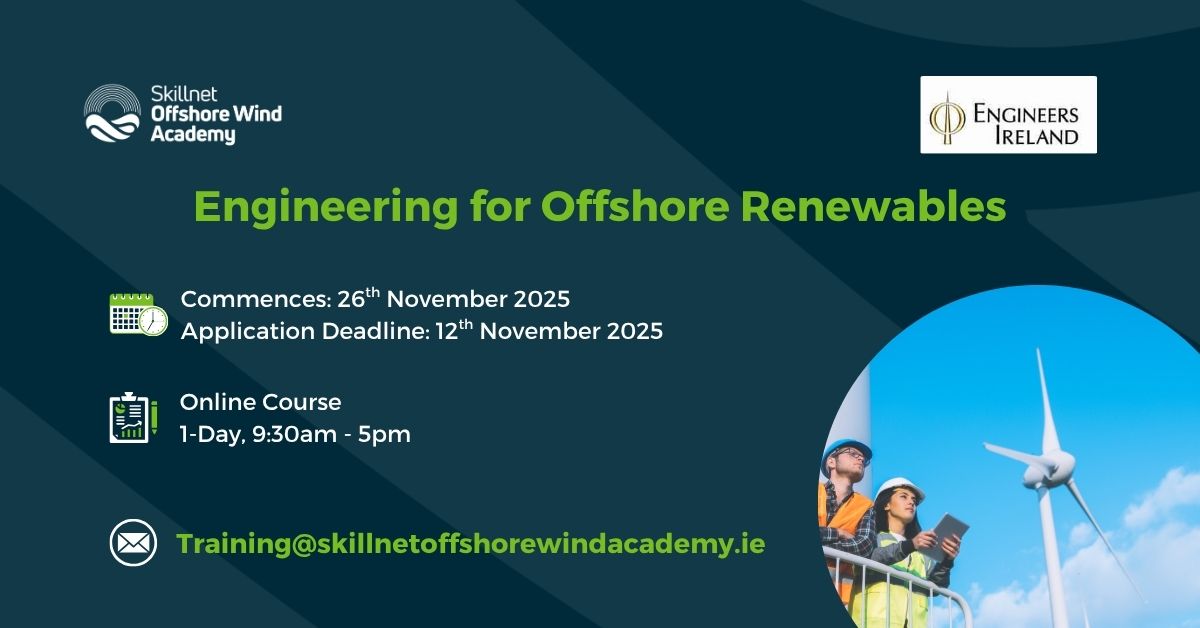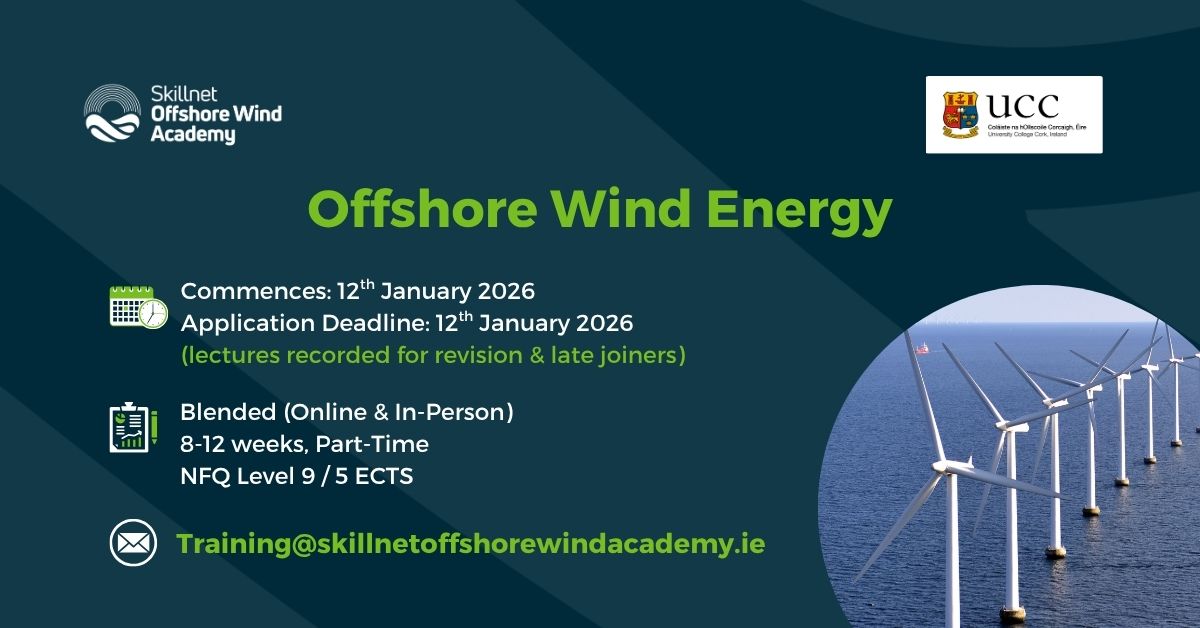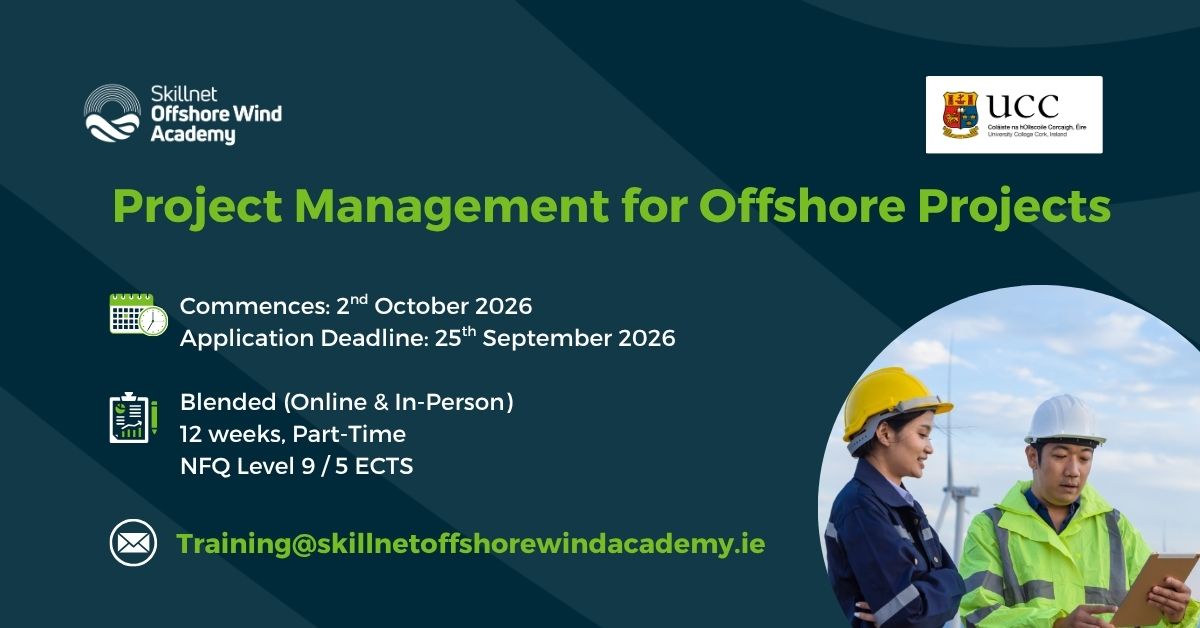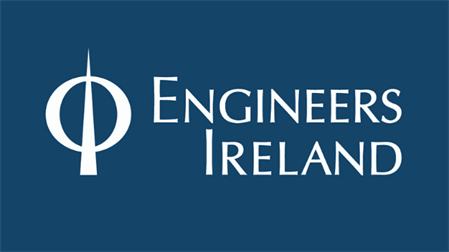
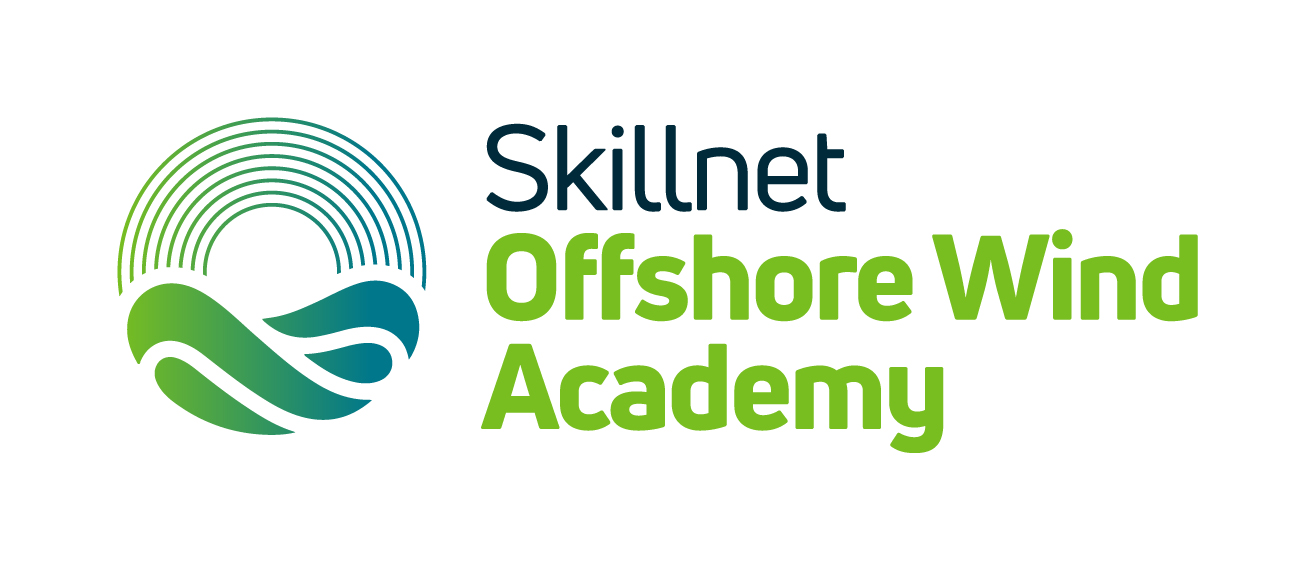
Over the coming decade, offshore renewable energy – particularly offshore wind – will see major growth and investment. Across Europe, capacity is projected to expand by more than 50 GW between 2020 and 2030, representing an investment of over €100 billion. Ireland is expected to contribute around 3.5 GW to this increase. Additional fee discount available to members of Engineers Ireland.
Course Outline
The key topic of study include:
-
Overview of Offshore Engineering
-
Key foundation types for offshore structures
-
Site investigation methods for offshore wind projects
-
Principles of monopile foundation design and relevant standards
-
Principles of jacket pile foundation design and relevant standards
-
Fundamentals of structural dynamics in offshore wind applications
-
Environmental and operational loading on offshore wind structures
-
Interactive Q&A session
Learning Objectives
By the end of this course, participants will be able to:
-
Identify the main design requirements for offshore renewable energy systems and evaluate the strengths and limitations of different foundation options.
-
Explain standard practices in offshore site investigation and their role in the foundation design process.
-
Apply key design approaches to commonly used offshore wind foundations.
-
Recognize the basics of structural dynamics relevant to offshore wind installations.
-
Describe how aerodynamic and hydrodynamic forces are calculated and applied to offshore wind turbines.
This programme will be delivered online in a live virtual classroom format. Learners will need a webcam and microphone to take part in real-time sessions with the trainers during the day. Access details and login instructions will be provided by email in advance. The course will run from 09:30 to 17:00, with the schedule and break times shared beforehand.
Skillnet Course Fee: € 332.50
Full Course Fee: € 475
Eligibility for the subsidised Skillnet Course Fee is based on the following factors:
Trainees
Key requirements regarding the trainee:
- Trainees must be based in the Republic of Ireland to be eligible.
- Trainees must be employed within private enterprise/self-employed.
- This program is designed for professionals working in a related sector, seeking to upskill and transition into the offshore wind industry.
Companies
Key requirements regarding the eligibility of businesses to participate in funding:
- Companies must be from private enterprise based in the Republic of Ireland.
- Skillnet Ireland funding is not available to public sector bodies or organisations that are publicly funded such as community-based not-for-profit companies or charities.
- Commercial semi-state companies are eligible providing that income contributed to a Network is not sourced from the public purse.
- Sole traders are eligible as Companies.
If you are not eligible for funding then the full course fee will apply. Where a trainee enrols on a course and pays the full fee, no refund will be provided if eligibility is determined later.
If you have further queries on funding, please contact training@skillnetoffshorewindacademy.ie including the module you wish to apply for.
- Engineering knowledge and understanding
- Consulting engineers with an interest in offshore structures and foundations. A basic knowledge of structural and geotechnical engineering is required. A calculator and pencil are essential.
- Companies seeking to develop and upskill their workforce to undertake projects related to offshore wind farm development.
Career Pathways
Completing the Engineering for Offshore Wind course opens pathways to a wide range of specialist careers across the offshore wind sector. Learners will gain the technical foundation to pursue roles such as Offshore Wind Engineer, Structural Engineer, HV Engineer, Geotechnical Engineer, or Operations and Maintenance Engineer, all of which are central to the design, construction, and operation of offshore wind farms. These roles are critical to ensuring projects are delivered safely, efficiently, and sustainably, supporting Ireland’s growing offshore renewable energy ambitions.
Progression
Graduates of this course can continue to strengthen their expertise through a range of specialised progression pathways. Recommended next steps include:
- Certificate in the Safe Operation of Offshore High Voltage Power Systems,
- Project Management for Offshore Projects,
- Fundamentals of Offshore Wind.
These courses build on core engineering knowledge and support career development across both technical and managerial roles in offshore wind.
To learn more about or to apply for this course, please visit Engineering for Offshore Renewables | Engineers Ireland.
Contact training@skillnetoffshorewindacademy.ie for any queries you may have.
